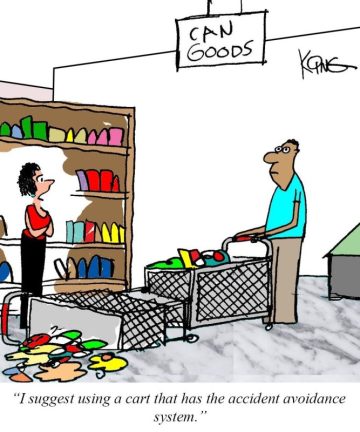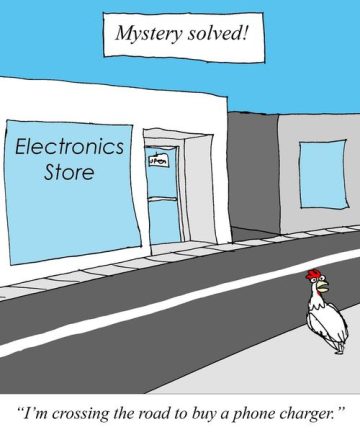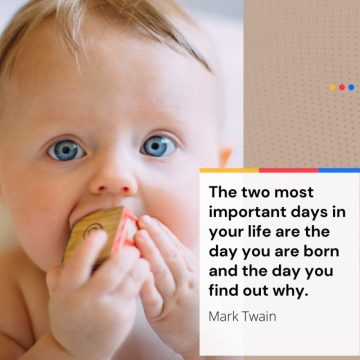Interesting Things to Know
Fake companies abound on social media
One of the ironies of social media today is that while Facebook and other social media companies automatically slap a challenge notice on fake news, their own advertising is often fake, with no such fact check in sight.
Advertising fraud on social media takes a number of forms: Brand theft, product misrepresentation, and fake reviews, to name just a few.
Social media users are ripe for the picking. Facebook is one of the largest superstores in history, with billions of shoppers and millions of small businesses pitching products. Small business ad revenues, nearly $70 billion a year in advertising for the company.
The fact is if you have a few bucks, you can advertise on Facebook and no one will look into your business at all.
According to an FTC study, 94 percent of scam victims said they saw an ad on Facebook or Instagram.
Brand theft is an old scam that finds new life on Facebook.
Advertisers use the pictures from real products and then claim you can order them at prices well below retail. Clothing is often fraudulent. If you went to your favorite clothing store and saw a brand name nightgown for sale at $60, you then have an electronic cookie on your computer. When you go to Facebook, you will likely see the same photo of the same nightgown advertised on a Facebook ad for $20. The difference between the two? The Facebook ad is a fraud, and you won’t get the product, it won’t be the same product, or the site will contain a worm or virus that steals your credit card info. Using PayPal doesn’t help. In fact, one hint of a scam is the store takes only PayPal.
Meanwhile, the fake company will list hundreds of positive reviews. Beware. These reviews are often solicited. Users get an email that says: Give us a positive review and we will send the product free. After the review is submitted, reviewers never receive anything.
According to Time Magazine, scammers set up dozens of companies with silly double or triple-word domains. Some examples from the Time article: ByDivStore.com, BoldWon, GoShoes.
According to Buzzfeed and Time, most of the clothing scams originate in mainland China.
Interesting Things to Know
Cultivating Patience: The Key to Enhanced Productivity and Fulfillment
Patience isn’t just a virtue; it’s a skill that can transform your work, relationships, and personal growth journey. In our fast-paced world, the urge to rush through tasks and milestones is common, but slowing down can unlock deeper understanding and greater efficiency. Here’s a simple exercise to help you develop patience in all aspects of life:
Value the Process: Instead of focusing solely on the end goal, embrace the journey. No matter how mundane, each task offers its own lessons and experiences. Recognize the value in what you’re doing right now.
Visualize Slowing Down: Notice when you’re hurrying and mentally picture yourself moving at a more measured pace. Imagine engaging with your work or conversation more deeply, absorbing the nuances and wisdom it offers.
Pause and Breathe: Whenever you catch your mind racing ahead, take a moment to breathe deeply. This physical pause can help reset your mental pace, anchoring you in the present and allowing you to engage fully with the task or moment at hand.
In her book Inner Gardening: Four Seasons of Cultivating the Soil and the Spirit, Diane Dreher advocates for this mindful approach, highlighting how slowing down enhances our focus and leads to significant insights. By practicing patience, we can enrich our understanding, improve our performance, and find joy in the paths we’re walking, both professionally and personally.
Interesting Things to Know
Celebrating the Joy and Power of Reading on World Book and Copyright Day
April 23 marks a special occasion for book lovers around the globe: World Book and Copyright Day. Established by UNESCO, this day is dedicated to appreciating books’ unique role in our lives, promoting the joys of reading, and recognizing the rights of authors and publishers. Books are more than just a hobby; they are a treasure trove of knowledge, entertainment, and inspiration connecting us across time and cultures.
The Multifaceted Benefits of Reading
Engaging with books offers a myriad of benefits, both for the mind and soul:
- Entertainment: With an endless variety of genres, there’s a book for every taste and interest, offering unparalleled escapism and enjoyment.
- Education: Reading expands your knowledge, introducing you to new ideas, cultures, and perspectives.
- Vocabulary and Language Skills: Regular reading enhances your vocabulary and improves your understanding of language nuances.
- Creativity and Imagination: Books stimulate the imagination, encouraging creative thinking and problem-solving skills.
- Concentration and Focus: Immersing yourself in a book requires concentration, which can improve your attention span over time.
- Stress Reduction: Reading has been shown to lower stress levels, providing a peaceful retreat from the hustle and bustle of everyday life.
- Memory Improvement: The act of reading and following complex narratives can strengthen memory and cognitive functions.
- Empathy: Literature often puts you in the shoes of its characters, fostering empathy and understanding of diverse human experiences.
- Neurological Health: Engaging with books can also contribute to long-term brain health, potentially reducing the risk of Alzheimer’s and other neurodegenerative diseases.
Celebrate With a Visit to Your Local Bookstore or Library
This World Book and Copyright Day, take the opportunity to explore the magic of books. Visit a local bookstore or library to discover new titles, revisit old favorites, or even participate in events celebrating the power of reading. It’s a perfect time to enrich your personal library and share the love of reading with friends and family.
Understanding Copyright Law
Copyright law plays a crucial role in protecting the rights of authors, illustrators, and publishers, ensuring they can continue to create and share their work. Respecting copyright by obtaining permission before using someone else’s creative output is essential. This supports the creators and fosters a healthy culture of respect and appreciation within the literary community.
As we celebrate World Book and Copyright Day, let’s acknowledge the invaluable contributions of those who bring books into our lives and commit to supporting their rights. Whether through buying books, borrowing from libraries, or advocating for authors’ rights, we can all play a part in sustaining the vibrant world of literature.
Interesting Things to Know
Celebrate National Arbor Day: Plant a Tree and Beautify Your World
April 26 marks National Arbor Day, dedicated to planting trees and fostering a deeper appreciation for their crucial role in our environment. The tradition began in 1872 when J. Sterling Morton of Nebraska highlighted the importance of trees to a thriving ecosystem. This day has since evolved into a nationwide observance, encouraging individuals and communities to plant trees and engage in activities that promote environmental stewardship.
Trees are more than just a scenic addition to our landscapes; they are essential to energy conservation in ways comparable to insulation or weather-tight windows and doors. By providing shade in the summer and acting as windbreaks in the winter, trees significantly reduce the energy needed to heat and cool our homes. It’s estimated that three strategically placed shade trees can lower air conditioning costs by up to 30 percent. This is not just a contribution to individual savings but also a substantial benefit to the environment by reducing the demand for energy.
The choice of tree species plays a significant role in maximizing these benefits. Deciduous trees, which shed their leaves in winter, are perfect for blocking heat in the summer while allowing sunlight to warm homes during the colder months. Placing these trees on buildings’ south and west sides optimizes their shade during the hottest parts of the day and seasons. Additionally, shading hard surfaces like driveways can further minimize the heat load on surrounding areas.
On the other hand, Evergreens retain their foliage throughout the year, making them excellent windbreaks that can significantly reduce a home’s heating energy consumption. When planted on the north side of a home, evergreens can shield against cold winter winds while still providing shade in the summer months.
National Arbor Day is an opportunity to impact our planet and communities positively. By planting a tree, you contribute to energy conservation, beautify your surroundings, and support a healthier environment. Whether you’re planting a deciduous tree to cool your home in the summer or an evergreen to protect it from winter winds, each tree planted is a step towards a greener, more sustainable world.
Interesting Things to Know
Rethinking Returns: The Shift in Retail Return Policies
Interesting Things to Know
The Power of Creativity and Innovation in Shaping Our World
Creativity and innovation are the lifeblood of human progress. In a world that’s rapidly evolving, the ability to innovate—to conceive new ideas, products, and solutions—is more valuable than ever. April 21 marks World Creativity and Innovation Day, a global celebration recognized by the United Nations to highlight the importance of these skills in driving human development and solving some of the world’s most critical issues.
Why Creativity and Innovation Matter
Creativity is not just the realm of artists and musicians. It encompasses problem-solving, the design of new technologies, and the development of strategies to address global challenges. It’s about looking at problems from fresh angles and finding solutions that break the mold. Investing in creativity and innovation isn’t merely an investment in individual talents; it’s an investment in our collective future.
Economic Growth and Opportunity
One of the most tangible benefits of fostering creativity and innovation is economic development. By encouraging the creation of new businesses and industries, we open up a plethora of job opportunities. Innovation drives competitiveness, improves products and services, and significantly enhances productivity. For countries and regions, this can translate into increased economic stability and growth, making the investment in creativity and innovation a powerful tool for economic empowerment.
Tackling Global Challenges
Perhaps even more critically, creativity and innovation are key to addressing the world’s most pressing problems, such as climate change, poverty, and famine. Through innovative thinking, we can develop sustainable technologies, create new social and economic development models, and find efficient ways to distribute resources. The challenges we face are complex and interconnected, requiring out-of-the-box thinking and novel approaches that only a strong commitment to creativity and innovation can provide.
Supporting Local Creatives
World Creativity and Innovation Day also serves as a reminder of the importance of supporting local talent. Behind every local business, whether it’s a boutique storefront or a factory in an industrial park, there’s a team of creative individuals working to invent new products, improve services, and solve problems. By choosing to shop locally, we contribute to our local economy and encourage innovators and problem-solvers who are building a better future from the ground up.
Investing in creativity and innovation is investing in the future. It’s about fostering an environment where new ideas can flourish, challenges are met with ingenious solutions, and economic growth is driven by forward thinking. As we celebrate World Creativity and Innovation Day, let’s commit to supporting the thinkers, creators, and innovators in our communities and beyond. Their vision and hard work enhance our daily lives and pave the way for a more sustainable, equitable, and prosperous world for all.
Interesting Things to Know
Revving Up: Exploring the World of Motorsports
For those with a need for speed and a love for the roar of an engine, the world of motorsports offers an adrenaline-pumping escape from the everyday. Whether it’s the gritty thrill of off-road ATVing, the high-flying jumps of motocross, or the lightning-fast sprints of drag racing, there’s motorsport out there to get your heart racing and your hands gripping the wheel (or handlebars) with excitement. Here’s a glimpse into motorsports that promise to deliver excitement, challenge, and the sheer joy of high speeds.
ATVing: Imagine powering through rugged landscapes, conquering steep hills, splashing through mud, and navigating tight trails. ATVing brings you closer to nature while offering the thrill of navigating challenging terrains. Opt for a solo adventure on a four-wheeler or share the excitement in a two-seater side-by-side quad. Many outfitters offer rentals and guided tours, making it easy for adventurers of all levels to jump in and enjoy the ride.
Motocross: For those who prefer two wheels to four, motocross offers a dirt-filled, high-octane experience that’s hard to beat. With courses filled with jumps, bumps, and tight turns, motocross riders experience the thrill of flying on land. Whether you’re an experienced rider looking to hone your skills or a newbie eager to learn the ropes, introductory courses led by professionals can offer a safe and exhilarating entry into the world of motocross.
Closed-Circuit Drag Racing: If the straight-line speed gets your pulse racing, closed-circuit drag racing could be your adrenaline fix. This sport allows drivers to unleash the full power of high-performance vehicles in a controlled environment. With options to race your own car or a rental, it’s a unique opportunity to experience the thrill of pushing the limits of speed without the worry of oncoming traffic.
Beyond these thrilling options, the motorsports world is vast and varied, with something for every taste and level of experience. From the strategic overtaking maneuvers of go-karting to the snow-covered adventures of snowmobiling and even the splashy fun of power boating, motor sports offer a dynamic range of experiences for thrill-seekers.
So, if the mundane commute has left you yearning for more excitement behind the wheel, consider stepping off the beaten track and into motorsports. It’s an opportunity to experience the thrill of the race, the joy of mastery, and the unparalleled excitement of speed. Fasten your helmet, rev your engines, and get ready to explore the exhilarating world of motorsports!

























































































